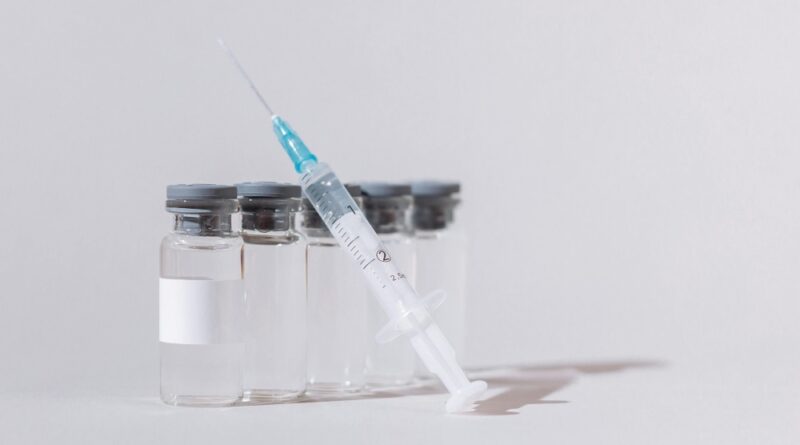If you or a loved one have ever struggled with a mental health issue such as depression, anxiety, obsessive-compulsive disorder or substance abuse, you may have heard about ketamine-assisted psychotherapy (KAP) as an effective and long-lasting treatment.
But is ketamine — the dissociative anesthetic that recently made headlines in the death of “Friends” star Matthew Perry, as well as billionaire Elon Musk’s open usage of the drug — a safe form of therapy and wellness?
Jmore recently spoke with social worker Lauren Going, founder of Inner Path Wellness in Mount Washington, and her colleague David O. Avruch, about the pros and cons of ketamine.
Jmore: What exactly is ketamine? Isn’t it a horse tranquilizer and a club drug?
LG: Ketamine was originally approved for use as a surgical anesthetic in the United States in 1970 and continues to be used for this purpose worldwide, including in veterinary surgery. Due to its strong record of efficacy and safety, ketamine was classified as an ‘essential medicine’ by the World Health Organization in 1985. In the early 2000s, it was discovered that ketamine can effectively treat depression and other mental health conditions. Ketamine-assisted psychotherapy emerged from this discovery and has been developed over the past two decades.

Like many psychoactive and pain-relieving substances, ketamine can be abused if taken outside its appropriate therapeutic context. Receiving healing from ketamine, therefore, means respecting its power by using it only within the proper setting.
How can one be sure it’s safe?
LG: As documented in dozens of analyses published in peer-reviewed medical journals, ketamine is safe and effective when taken as prescribed within an appropriate clinical setting. Anesthesiologists regard ketamine as extremely safe because it does not depress breathing or blood pressure.
There are some contraindications for its use, and ketamine is not for everyone. Each client completes a medical screening with an on-staff health care provider prior to receiving the medicine.
What problems does ketamine usage aim to treat?
LG: Ketamine Assisted Psychotherapy is effective for treatment-resistant depression, anxiety disorders, trauma exposure, OCD, maladaptive coping patterns, substance use disorders, anxiety and depression related to end-of-life, and in general, just being ‘stuck.’ An emerging form is ketamine-assisted couples therapy designed for romantic partners seeking to repair or create a secure attachment bond. Inner Path is fortunate to be one of a handful of clinics in the country offering this service to couples.
What are sessions like?
LG: Our clinic follows a traditional model of KAP, consisting of preparation sessions, a dosing session, and then integration sessions. Ketamine is used only during dosing sessions, which last two hours and are supported by a therapist the entire time. The dosing session sometimes involves an interactive process between the client, and the therapist or may consist of a more inward-focused journey.
Ketamine affects different people in different ways. In either case, the integration sessions are where the ketamine experience is made sense of. Preparation and integration are as important to the client’s healing process as the dosing sessions.
How long does treatment typically last?
LG: There is a lot of diversity depending on the individual and their situation, but the average is three or four dosing sessions.
Is there a Jewish perspective on KAP?
DA: Any type of therapy can be understood as a temporary withdrawal from daily life in order to facilitate a process of growth or healing. Therapist and author Estelle Frankel identifies such transitions as ‘a time of retreat from the outer world of doing in order to return to the womb of becoming. Kabbalistic descriptions of the creation of the world refer to the process of tzimtzum — the withdrawal of the Divine into Himself, a contraction which generated the space from which light could emanate.’

Indeed, rituals of withdrawal or concealment are common within Jewish religious practice. For instance, the mikveh bath is designed to support spiritual purity, while the practice of yichud after a wedding ceremony provides temporary seclusion to the bride and groom — a space to connect as newlyweds, sheltered from the hubbub of the celebration.
Though psychedelic experiences are notoriously difficult to describe with words, KAP can offer a particularly deep and vivid form of withdrawal — one from which powerful possibilities for healing and growth can emerge.
What is the success rate of ketamine treatment?
LG: According to the current literature, around 70-80% of people on average see a substantial reduction of their symptoms of depression. In other words, many but not all individuals who undergo KAP report significant improvement in their functioning.
Do you use ketamine in combination with other therapies?
LG: This is one of our specializations at Inner Path. We combine KAP with models such as internal family systems, somatic therapies, eye movement desensitization and reprocessing [EMDR], gestalt and emotionally focused couple’s therapy.
Is there an ideal patient for ketamine therapy?
LG: The ideal client is highly motivated, knows that no treatment is a magic bullet, and is ready to put in the work required to create lasting change.
What types of training do your therapists have?
LG: All of our therapists hold a clinical license as either licensed professional counselors or clinical social workers. Each has received advanced training in KAP in addition to training in other modalities such as internal family systems, EMDR, emotionally focused therapy and somatic modalities among others.
For information, visit innerpathbaltimore.com.





